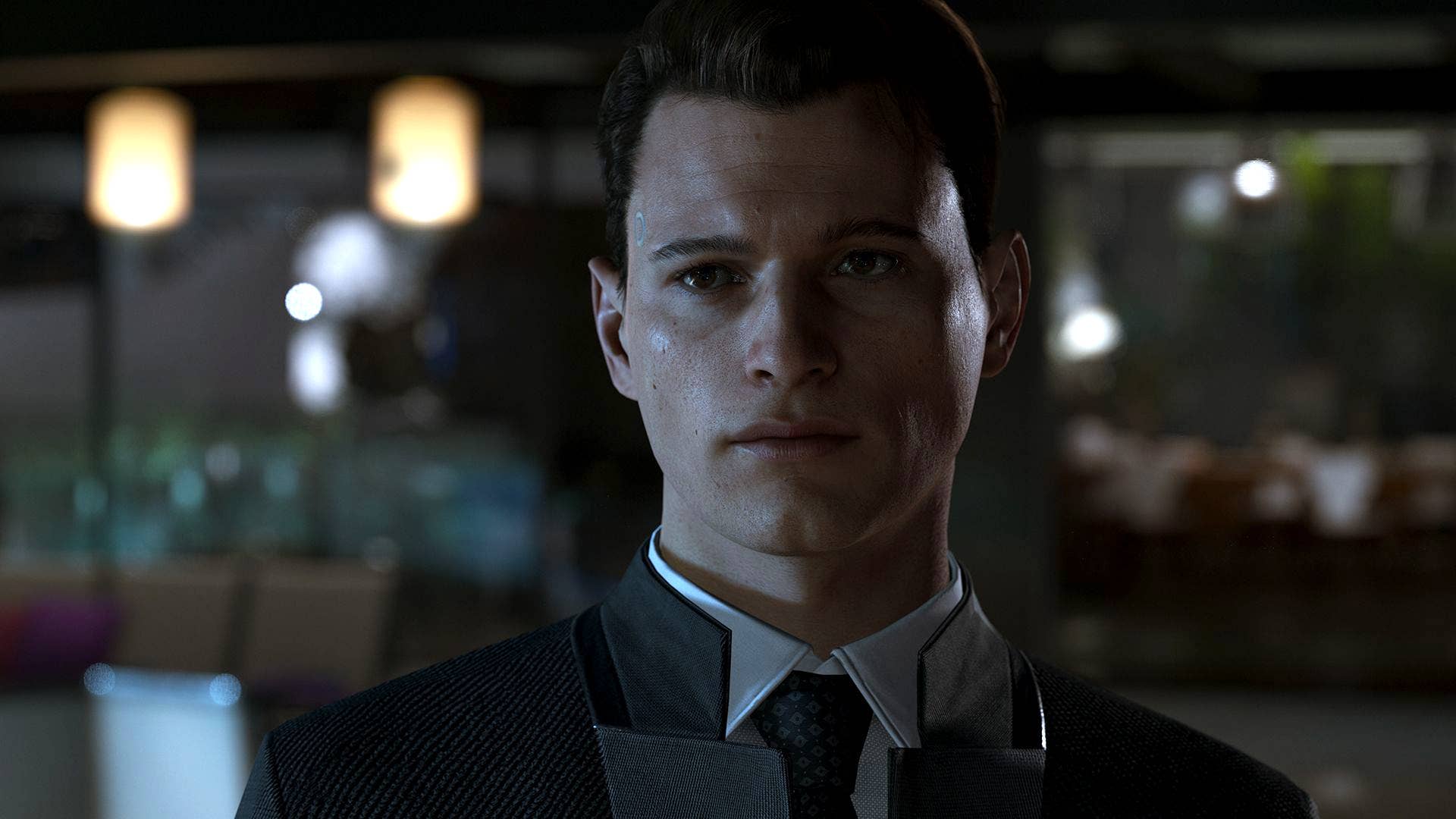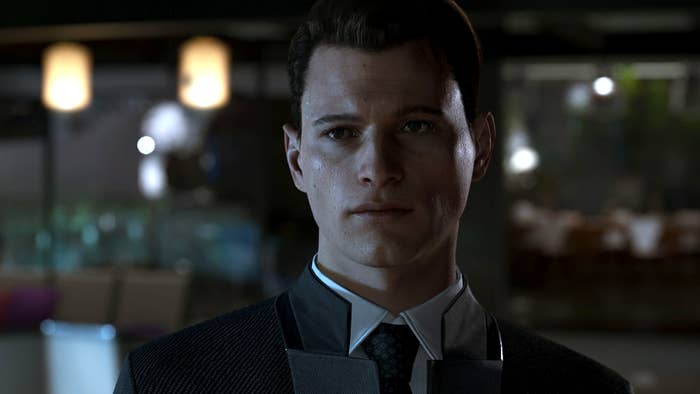
There are only a handful of people that can say they’ve had the pleasure of working with David Bowie but in the video games industry you can imagine that the number is far and few between. Games designer, writer and director David Cage can be one of the very few in the industry who can say he’s had that privilege.
A pioneer in video games culture in his own right, and inspired by Science Fiction’s golden age of authors and some of the finest directors in modern day cinema, Cage and his French-based studio Quantic Dream have been responsible for the shift in attitudes to the way we play video games. Their award-winning Heavy Rain showed us that a Triple A game doesn’t always have to be about mindless action and blowing shit to smithereens, it can also convey drama and nuance, becoming a portal to a physiological mind-fuck that makes you question your own morality. Speaking at this year's London Film Festival, his games' serve as an example of two popular mediums of entertainment that blend well together, in some respects you could say he’s the David Fincher of video games. His follow-up, Beyond Two Souls, had him and his studio working with acting powerhouses Ellen Page and Willem Dafoe and his next game in development, Detroit: Become Human, is sure bring fans to a new level of gaming that they have not experienced yet. In many ways Cage and Quantic Dream’s work is proof that gaming is the ultimate immersive experience, even more so as we enter the age of VR, which Cage himself sees as his next challenge.
We sat down with him after his LFF Q&A to talk about the changing attitudes in video games, his early work with the late, great David Bowie and the emotional and personal impact his work has had on the fans.
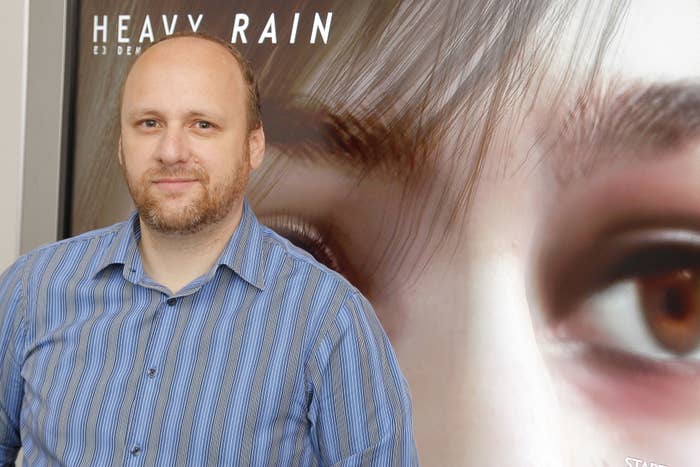
What are your earliest memories as a gamer?
Oh that’s a good question, it was a Coleco console—very, very old. You probably weren’t even born. It was just these small rackets and ball on the screen, like Pong. I’ve played on everything, I had the Amstrad and I played a game called Head Over Heels where you were playing the legs or the head of a character and they could separate or come together. There was also a Batman game that was amazing as well. Then I played on the Atari SG, the Amiga, the Sega Master System, the NES and SNES and the Neo Geo, which was a fantastic console.
I’m just taking care of what I’m doing and what I want to do, if people copy it great, if they don’t great.
You grew up in the early days of gaming, does it amaze you to see it come from basic 2D sprites to today’s level of sophistication?
Of course, when you start with Pong and you see over a short period of time—when I think about it it’s not so far away from when I was a kid, which was 30 years ago—the recent games and how sophisticated they get it’s absolutely insane, it’s spectacular. But it’s fascinating and you can only wonder where it will go from there.
What influenced your writing for games like Heavy Rain and Beyond Two Souls?
You know in my career I try to get away from influences and the more I write the more I try to write something that’s not so connected to anything existing. 'Heavy Rain' was probably inspired by Se7en, Memories of Murder—which is like the South Korean version of 'Se7en', and The Usual Suspects, films like that were really inspiring to me. For 'Beyond Two Souls' I tried something that was less connected to anything existing and with Detroit I hope to continue in that direction. You can’t write by being inspired by things all your life, there’s a moment you need to hear your own voice and discover what you have to say by yourself and since 'Beyond...' this where I am in my career.
So how do you find inspiration if you're avoiding other sources of popular media?
Inspiration is not one moment its not one thing, it’s something that grows inside of you and there is a moment that it’s ready and you think "Oh it’s clear, I have to do this". It’s a process more than it is an instant, so it’s growing in you until the moment it gets out and then you know that you need to do this, you’ve got no choice that’s the next three years of your life, it’s going to be this idea.
What’s your process as writer, do you have a cabin in the woods somewhere?
I usually write at home, I have an office that’s open on in the living room where my family lives so I can hear them and see them when I work and it’s something that I like. I can only write from home, I have a very special setup, I use headphones that have no sound, so sometimes when I really need silence I put them on. It slows your breathing and that’s so scary, sometimes you just hear your heart beat. But it’s really about building a shell around you where you can only focus on your work.
Are their any games today that you admire for its story telling as well as its gameplay and graphics?
I think that Play Dead's Inside is a very good example, I also enjoyed Brothers: A Tale Of Two Sons, those are the two games that really struck me as really clever. I am also a big fan of [Fumito] Ueda-san’s work, you know; Ico, Shadow Of The Colossus and The Last Guardian, I like his talent and sense of poetry in games. I love indie games in general, I think they have many interesting ideas.
What are you thoughts on Telltale Games because they seem to do similar stuff to you and Quantic Dream. Do you see them as the competition?
No they’re not the competition, they’ve said loud and clear they got their inspiration from 'Heavy Rain', I guess it’s an homage. It’s great, I mean they’re perceived as doing things close to what we’re doing but I don’t think that it’s that close, I think were doing different things, but it’s great because they helps us expand the genre. You know when we released 'Heavy Rain' a journalist asked me "How do you feel about nobody copying your genre and just being alone in your field?". I told them "I don’t know and I don’t care so much", I’m just taking care of what I’m doing and what I want to do, if people copy it great, if they don’t great. Now people get back to me and tell me Telltale is doing similar things to you and I have just have the same answer: "I do what I have to do", if people find it inspiring great, if they don’t great.
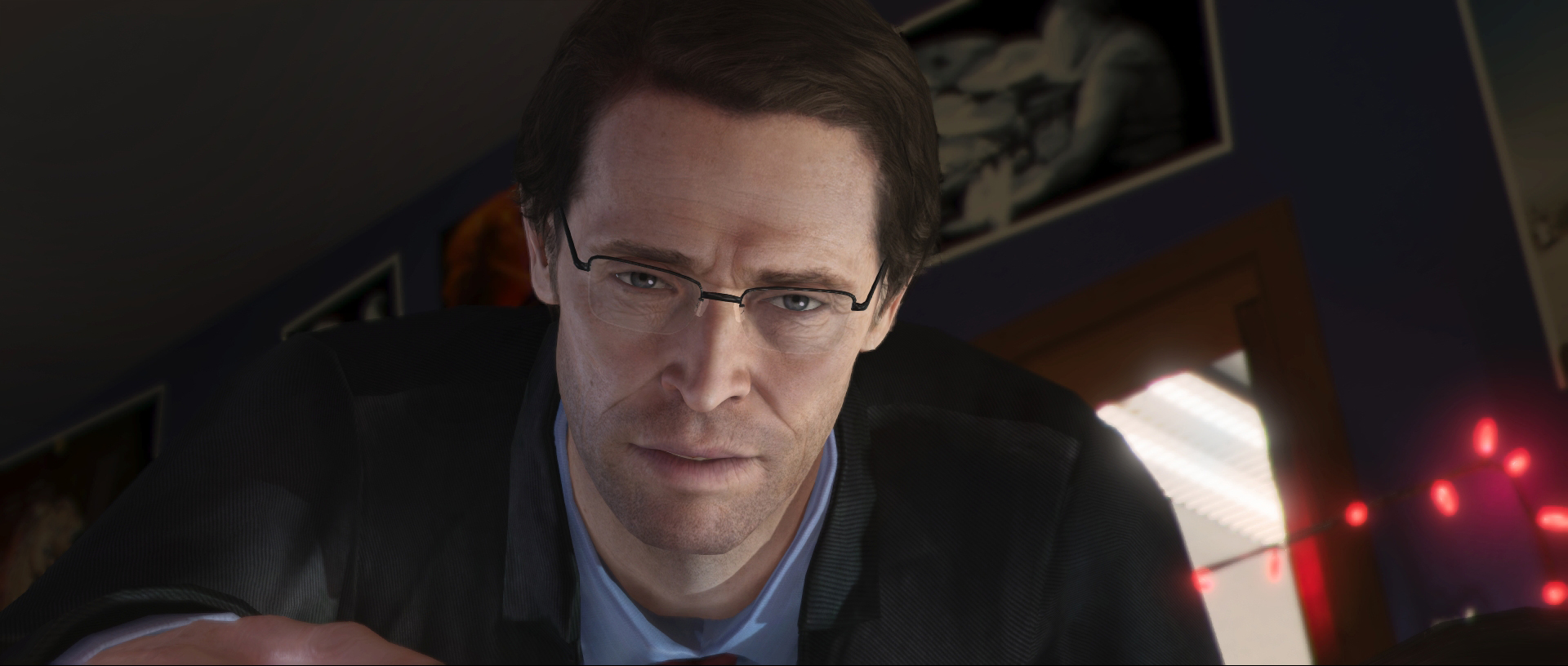
At what point did you realise narrative driven video games could work?
It was on Omikron: The Nomad Soul, my first game, which featured David Bowie. It was really an open-world game and it was one of the very first open cities in real-time within a game. I kind of enjoyed creating this but at the same time I really enjoyed the story driven sections in it, maybe more than the open world. I had the feeling that people would just wander the streets and explore, which was great but at the same time I could not convey the sense of storytelling I wanted. So after 'Nomad Soul' I thought that in Fahrenheit[for the PlayStation 2] that I would like to focus on storytelling, to try and tell this story. For me the moment that was really important was when I saw, for the first time, this scene where our character Tyler Miles wakes up in the morning. He has a shower, grabs his clothes, talks to his wife and goes to work. I felt that if we could do this, make it playable and interactive, then we can do anything. Of course we can do spectacular things, mix explosions and stunts, but if you can do this tiny imitate moment, something playable and interesting, then we can tell any story.
Not many people in the video games industry can say they worked with Bowie, what was it like working with him?
Working with David Bowie was absolutely amazing especially because he was so accessible, very easy to work with, very professional and very nice. He was very interested in the project, he didn’t come for money or anything like that, it was because he was creatively interested in what we were doing and that’s why he was so easy. He wanted to do things he never done before, that was his motive. The relationship was very simple, very direct and incredibly interesting.
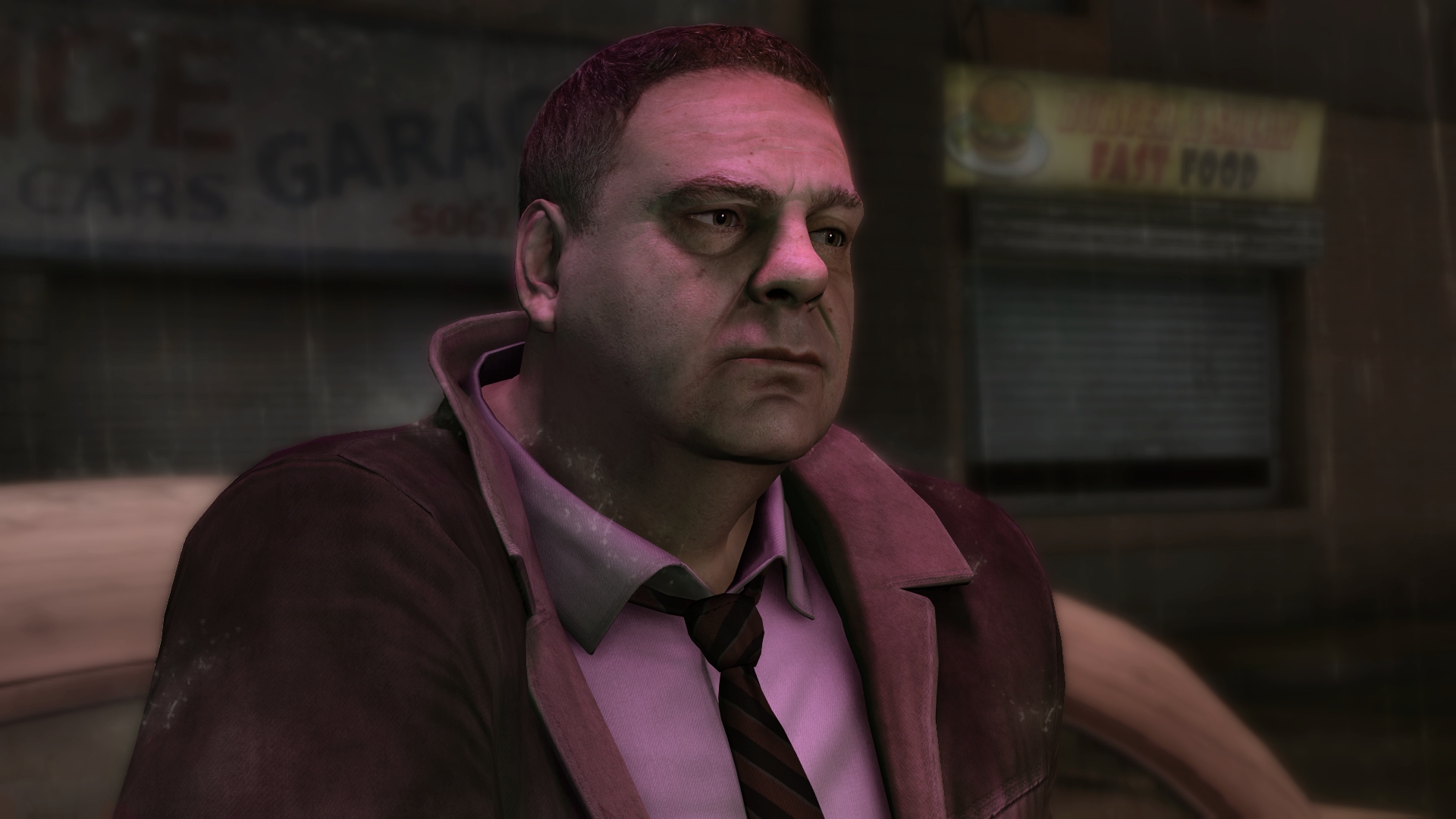
Why do you think 'Heavy Rain' made the impact that it did? Were you always sure that it was going to be a hit?
We were absolutely sure of nothing. The thing is 'Fahrenheit' was really a test before 'Heavy Rain' because it was a first version of the ideas that we were working on. Interactive story telling, moral dilemmas, choices and consequences, everything was there in 'Fahrenheit', maybe not implemented in the way it should have been. 'Heavy Rain' was our second chance to use what we discovered but in a better way. I think this is what convinced Sony to trust us because they said "Oh, you did this game that was so close before and maybe you can do it even better next time", 'Fahrenheit' is for me the foundation. I think 'Heavy Rain' arrived at the right time, the audience was ready for this kind of experience. It was close enough to things they knew already because it was in the world of 'Se7en'; there was a serial killer so everybody felt like "Okay, I kind of understand what this game is about". We also introduced the game with a demo called The Taxidermist, that was really a fantastic showcase of branching narrative. So I think it was a connection of the right moment and the right kind of story and world environment that shows the gameplay potential of the genre. What really made the game a success in the end also was the father and son relationship. So many people got back to us to say "Oh I’m a father and I was so moved by this story", so I think that was the other layer.
In that respect, do you think today’s gamers are more sophisticated now in their tastes?
Absolutely, I think there are also more and more gamers getting older and I think when they get older they start to have different expectations. Because when you’re 15 you don’t have the same expectations when you’re 30, and that’s normal. It’s true for films and books as well, you don’t read or watch the same thing when you were 15, for games it’s pretty much the same thing that’s happening. I think that there are different expectations for older gamers in general.
For your follow up game 'Beyond Two Souls' you got to work with Ellen Page and Willem Dafoe. What was that experience like?
Oh it was amazing, you know when you work with people who are talented and who came for the right reasons like wanting a creative adventure then everything becomes easy. They bring their talent and their experience and they want to serve the project, they want to give their best. I was lucky enough to start my career working with Bowie and when you start with that you’re not scared of asking for anyone, the worst you can get is a no and that’s fine. Ellen and Willem wanted to have something different to what they knew and we explained motion capture to them before they agreed to work on the project, I wanted to make sure it didn’t come as a surprise. It’s always the same, on the first day on-set, they are disoriented and on the second day they love it because it’s total freedom for the actors. I remember that Willem said that he does a lot of stage acting and he felt it was really close to that, you just deal with your partner and play with the script
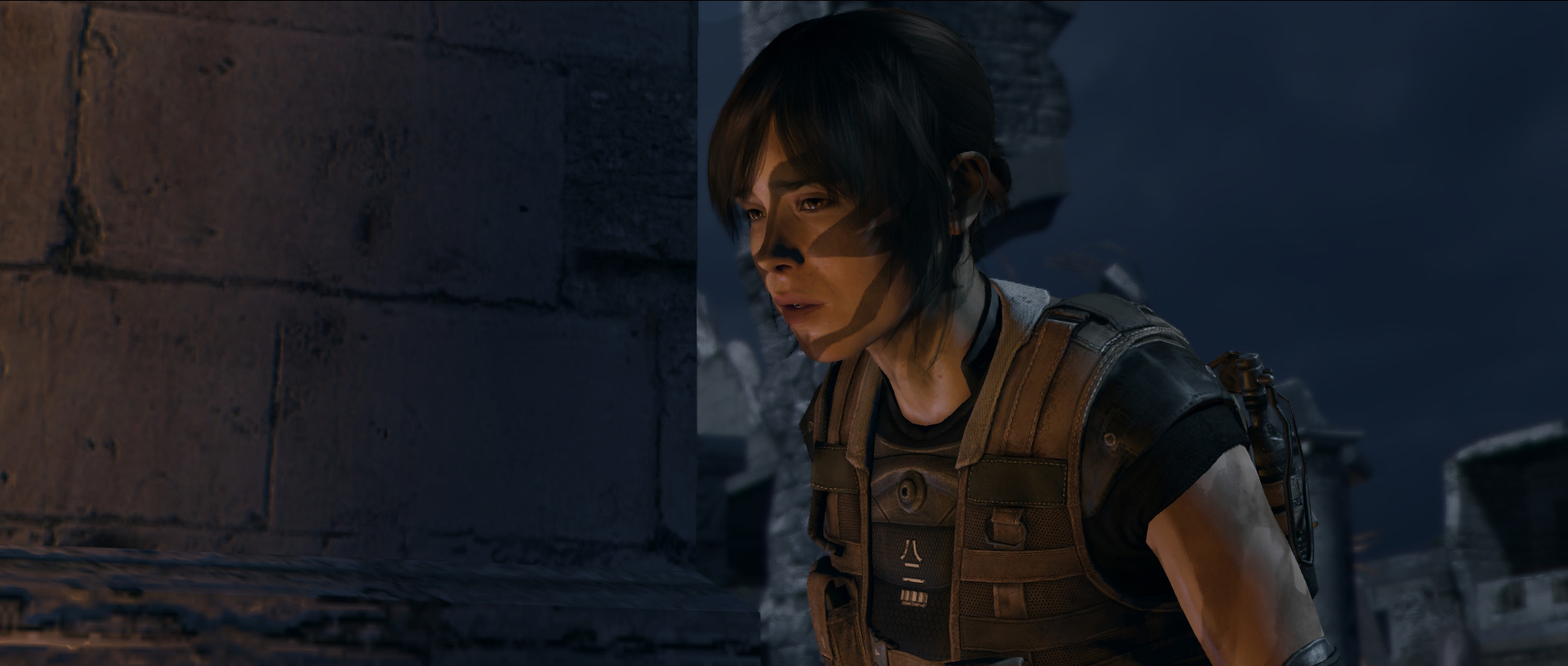
The reviews for 'Beyond…' were quite polarising, was that a concern for you going forward?
Of course you always want your games to please everyone and you want everyone to like it, but at the same time 'Beyond…' is the game I wanted to make and there is a moment where you’re in connection with the market and sometimes you’re not. Do you need to reconsider everything you believed in for 20 years because you had one game that didn’t work as well as the previous one? I don’t think so, I think maybe it was the wrong moment—the game was released just before GTA V and it was just at the end of the PS3’s cycle, just before the PS4 was released. Maybe it was not the story the market was expecting, maybe we didn’t explain the game well enough. It’s always disappointing but at the same time it’s a game I’m really proud of, it’s a very different experience, a unique journey and it’s something that I really enjoyed doing and I’m very proud of what it is at the end.
when you’re 15 you don’t have the same expectations when you’re 30, and that’s normal.
It still done well in spite of the reviews, so that must be a plus right?
Yeah it’s very interesting, there’s a huge community of fans behind the game and they write to us even years after the release and what we hear sometimes is very moving. We had letters from one person who had someone dying in his family, he played the game and just having this vision of the afterworld where the presence is still there just helped him to get through that situation and think "Okay, maybe death is not the end" and the game was really telling that story. Another time this girl at a party one night came up to me and said she loved 'Beyond…', she told me how she kept crying at the homeless scene. I asked her why and she told me she was homeless herself for two years and playing Ellen Page’s character—who was homeless—just reminded her of what it was like to live in the streets. We got tons and tons of things like this that all moved people very deeply, when you’re a writer this is what you hope for, that someone will connect with what you’re trying to say.
'Heavy Rain' and 'Beyond Two Souls' Collection on PS4 is available now from PSN Store. Their next game Detroit: Become Human is currently in development with no confirmed release date.

